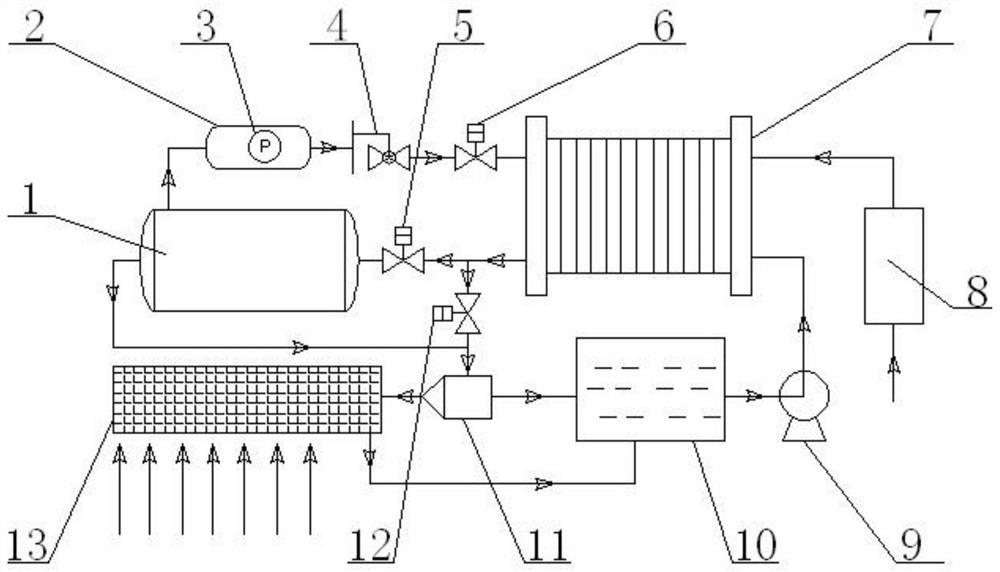A high specific energy aviation fuel cell power generation device and control method
A fuel cell and power generation device technology, applied in fuel cells, fuel cell additives, fuel cell heat exchange, etc., can solve the problem that liquid hydrogen cannot directly use fuel cells to generate electricity, and achieve light weight, high energy density, and small size. Effect
- Summary
- Abstract
- Description
- Claims
- Application Information
AI Technical Summary
Problems solved by technology
Method used
Image
Examples
Embodiment 1
[0023] A schematic flow chart of Embodiment 1 of an aviation fuel cell power generation system using liquid hydrogen as fuel with high specific energy is as follows figure 1 Shown: This process is applicable to an aviation hydrogen-air fuel cell power generation system that uses hydrogen as fuel and oxygen in the air as oxidant. The heat generated during the working process of the fuel cell is used as the heat source for the vaporization of liquid hydrogen, and the high-speed flowing air outside the aircraft wall is used as the cold medium for heat exchange to achieve efficient thermal management of the entire system. By controlling the on-off of the solenoid valve for water, the pipeline is switched, and then the vaporization speed of the liquid hydrogen can be controlled to achieve the purpose of changing the working condition of the fuel cell.
[0024] to combine figure 1 , the present invention consists of a liquid hydrogen storage tank 1, a buffer tank 2, a pressure sens...
Embodiment 2
[0031] The specific operation steps of embodiment 2 are the same as embodiment 1. Only the design of the heat exchanger 13 can be different, the same principle is to use high-speed air as the cooling medium, the heat exchanger of this embodiment is not necessarily designed as a part of the outer surface of the aircraft. Considering the specific structure of the aircraft, when the heat exchanger is not suitable to be placed on the surface of the aircraft, it can be designed as an independent part, placed near the air vent of the aircraft, or hung outside the cabin, and then used when the cooling capacity does not meet the requirements Forced exhaust for cooling.
PUM
 Login to View More
Login to View More Abstract
Description
Claims
Application Information
 Login to View More
Login to View More - R&D
- Intellectual Property
- Life Sciences
- Materials
- Tech Scout
- Unparalleled Data Quality
- Higher Quality Content
- 60% Fewer Hallucinations
Browse by: Latest US Patents, China's latest patents, Technical Efficacy Thesaurus, Application Domain, Technology Topic, Popular Technical Reports.
© 2025 PatSnap. All rights reserved.Legal|Privacy policy|Modern Slavery Act Transparency Statement|Sitemap|About US| Contact US: help@patsnap.com

